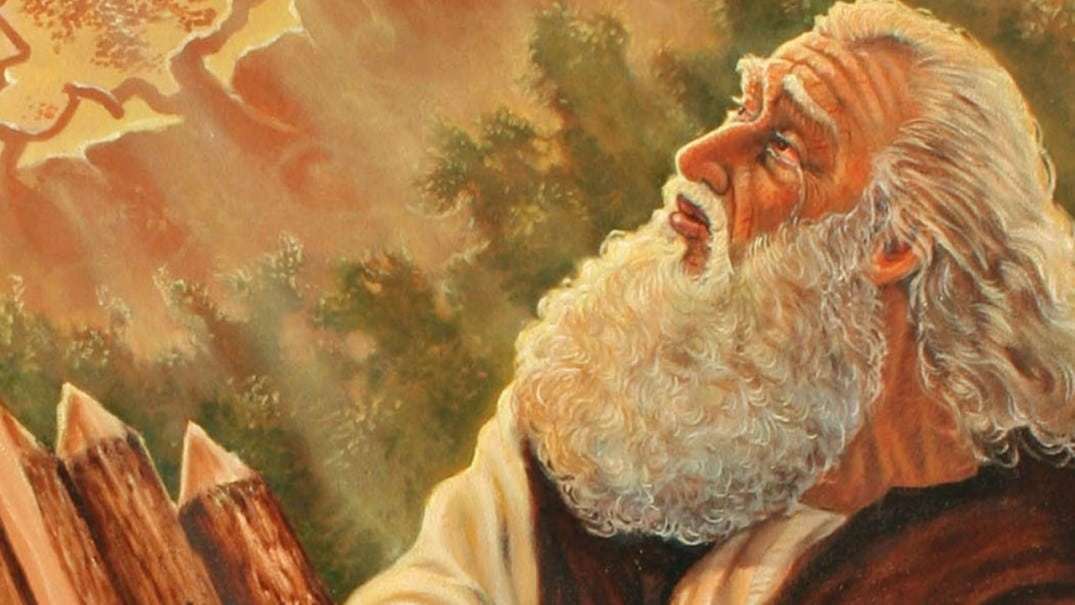Abraham, a name imbued with profound significance throughout the annals of religious history, stands as a hallowed figure within the Christian tradition, revered as the archetypal patriarch and an emblem of faith. Often referred to as the “Father of Nations,” his narrative unfolds in the tapestry of the Hebrew Scriptures and is woven intricately with threads of divine covenant and human endeavor. To explore Abraham’s role in Christianity is to traverse an intricate landscape where theology, history, and spirituality intersect.
Born as Abram in Ur of the Chaldeans, his journey commenced not merely as a geological migration but as a theological expedition. The divine call that urged him to depart from his homeland resonates through the epochs, echoing a significant rupture from the familiar into the uncharted. Abraham’s relocation is indicative of a spiritual metamorphosis, necessitating not only physical movement but also a shift in identity. His voyage into Canaan symbolizes the quest for a promised land, a metaphorical and literal endeavor to seek divine fulfillment.
The covenant between God and Abraham is perhaps one of the most pivotal declarations in the biblical narrative. It is here that God entrusts Abraham with an extraordinary promise: that he would become the progenitor of a great nation. This covenant, encapsulated in sacred language, establishes a unique relationship characterized by trust and obedience. One could liken this covenant to a celestial contract, binding both divine and human realms in a sacred partnership. This unprecedented promise of descendants numbering as the stars in the sky and the grains of sand on the seashore offers a glimpse into the vastness and breath of divine intention.
Against the backdrop of his profound faith, one must not overlook the moments of doubt that pepper Abraham’s narrative. His sojourn is marked by instances where he grappled with the enormity of God’s promise. The poignant tale of Sarai, his wife, and their struggles with infertility is emblematic of the human condition—of waiting in hope despite seemingly insurmountable challenges. Sarah’s laughter in the face of prophecy reverberates as a testimony of human incredulity juxtaposed against divine assurance. Such moments serve as a reminder that faith, while often steadfast, is not exempt from the shadows of uncertainty.
Moreover, the binding of Isaac presents a troubling yet illuminating episode that highlights the depths of Abraham’s faith. Here, the narrative introduces an unsettling tension—obedience to divine command teetering on the precipice of paternal love. The symbolic act of sacrifice refines the essence of faith, suggesting that true devotion may demand the relinquishment of cherished aspirations. This moment reverberates through Christian theology as a prefiguration of Christ’s sacrifice, enhancing Abraham’s role within the broader narrative of redemption. The mountain of Moriah transforms into a sacred space, not only for Abraham’s existential trial but also as a precursor to the ultimate sacrifice of Jesus, imbuing the story with layers of prophetic significance.
Abraham’s life is not merely cataloged in singular events but emerges as a rich narrative interspersed with covenants, relationships, and divine interactions. His connections extend beyond familial bonds to encompass a larger community, as he becomes an exemplar of hospitality and kindness. The visitation of the three angels at Mamre is a testament to Abraham’s welcoming spirit, illustrating how the mundane can intersect with the divine within everyday interactions. In this sense, Abraham serves as an archetype of generosity, a quality that extends beyond piety into the realm of actionable love.
His legacy reverberates through the generations, as the Abrahamic faiths—Judaism, Christianity, and Islam—claim him as a foundational figure. This triadic claim manifests a profound interconnection that underscores the shared heritage of these faith traditions. Abraham emerges as a bridge, facilitating dialogue and understanding across religious divides, emphasizing the universal quest for identity, meaning, and divine connection.
In Christianity, Abraham becomes the quintessential model of faith, as expounded in the New Testament. The Apostle Paul elevates Abraham’s faith as a means of justification, making a compelling case for the universality of grace. Through Abraham, believers learn that faith transcends adherence to law; it is a transformative trust in God, a relational engagement rather than mere compliance. The narrative captures the essence of a living faith, one that invites believers into an intimate relationship with the divine, transcending the constraints of ritualistic observance.
As the Father of Nations, Abraham’s legacy culminates in the celebration of diversity within unity. The multitude of nations that trace their spiritual lineage to him illustrates a divine intention that embraces humanity’s rich tapestry. This overarching vision invites believers to acknowledge their shared heritage and fosters a spirit of inclusiveness. In a world often marked by division, Abraham’s story prompts a vision of solidarity, where faith becomes a catalyst for compassion, understanding, and connection.
In conclusion, Abraham’s narrative serves as an indelible testament to faith’s capacity to navigate the intricacies of the human experience. From his arduous journey to divine promises, from moments of doubt to acts of profound faith, Abraham transcends the pages of scripture to become a living emblem of hope. His legacy invites all who seek the divine to reflect on their journeys, to embrace uncertainty, and to trust in the sacred promises that bind humanity across the ages. The Father of Nations stands not just as a historical figure but as a beacon illuminating the path of faith and unity in an ever-complex world.



